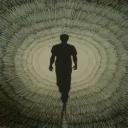Yahoo Answers is shutting down on May 4th, 2021 (Eastern Time) and the Yahoo Answers website is now in read-only mode. There will be no changes to other Yahoo properties or services, or your Yahoo account. You can find more information about the Yahoo Answers shutdown and how to download your data on this help page.
Why Did Knowledge Disappear After the Fall of Rome?
Knowledge of medicine, engineering, science, geography, history, the arts, were gone or vastly diminished. Why did that occur? For example, the making of concrete was known to the Romans, but after the Fall of Rome, the knowledge was lost, and it was not rediscovered until the latter portion of the nineteenth century.
10 Answers
- Gray BoldLv 72 months ago
Barbarians at the gate. Historians have postulated several explanations for the appearance of "barbarians" on the Roman frontier: climate change, weather and crops, population pressure, a "primeval urge" to push into the Mediterranean, the construction of the Great Wall of China causing a "domino effect" of tribes being forced westward, leading to the Huns falling upon the Goths who, in turn, pushed other Germanic tribes before them. In general, French and Italian scholars have tended to view this as a catastrophic event, the destruction of a civilization and the beginning of a "Dark Age" that set Europe back a millennium.
- EntropyLv 72 months ago
Well, first of all, alot of that knowledge didn't disappear...it moved east. The Byzantines, and later the Islamic Empire incorporated and preserved alot of it. Then, as Europe began trading more heavily during the Renaissance, alot of that technology came back west. For example, early Renaissance folks learned about triangular sails from Muslims and called them 'lateen' sails. Because they were Latin...ie Roman...in invention. There's a myth that this cultural transfer happened from the Crusades, but it was mostly trade...though certainly the crusades exposed the European nobles to ideas that amazed them.
But the reason is that knowledge and science requires a certain political stability and environment in which to flower. As Rome fell, you lost centralized authority that bound wide and disparate groups together.
It's hard to imagine from our modern context with all of our institutions for learning and science, but the ancient world, and even the Roman world didn't fetishize learning quite like we do, and when Rome fell, in Europe, it was even less important. What was important was growing enough food to not starve. What was important was not dying of plague. What was important was worshipping your religion. Institutions and cultural values DO change.
- ?Lv 62 months ago
The Dark Ages (post fall of the Roman Empire) attest to the slowing if not loss of advancements in society. Rome had provided the discipline and leadership to keep up.
- ?Lv 52 months ago
That entire scenario you are pointing out is a great exaggeration and not historical.
Also keep in mind that Roman society existed on the backs of slaves which liberated a small number of people to do other things than work to feed and shelter themselves.
Concrete was used continuously from the fall of the Roman empire to this day, but the quality of materials used varied a lot, concrete was used to make a lot of churches and castles between 400 and 1500 AD.
- TinaLv 72 months ago
It didn't. For instance the works of Galen, physician and surgeon of the Roman Empire 129 AD - 210 AD were known and respected throughout the Middle Ages - indeed the treatments he recommended - bleeding, enemas and emetics remained in popular use until the end of the 18th century. But because Ancient Rome did not allow the dissection of human bodies his researches were limited to monkeys and pigs so it was not until the 16th century that Andreas Vesalius, Chair of Surgery at the University of Padua was able to make discoveries in human anatomy (the Church did permit dissection) which disproved some of Galen's findings.
Roman concete owes its particular qualities to the use of volcanic ash - not always available in countries without volcanoes.
@usaf etc in fact the church protected classical learning. Many ms were preserved in monasteries which would otherwise have been lost. Who told you that classical learning was 'suppressed and destroyed' - it was quite the opposite.
And where did you get the idea that 'Rome had a very low rate of infection? - did you just make it up? I recommend this article
Disease in Imperial Rome
https://en.wikipedia.org/wiki/Disease_in_Imperial_...
It begins:
"During the Imperial Period of Rome, disease was a devastating aspect of life. As the borders of the empire continuously expanded and the population steadily grew, cities in the Roman Empire were exposed to a multitude of diseases. There were a variety of potential causes of these diseases present in the highly dense and quickly growing society's way of living. The sewage systems, the public bathing houses, and the diet of citizens in Imperial Rome all contributed to the spread of disease."
You might also look up "The Antonine Plague."
And read some real history.
- ?Lv 72 months ago
Yes, knowledge/ learning/ civilization did disappear after the 'Fall of Rome' just like they did after the 3rd Dynasty of Ur, and after the Bronze Age Collapse of 1200BC. This happened over and over in human history because civilization is a 'human thing' it requires human organization/ discipline/ order/ laws etc.
Knowledge disappeared after the Fall of Rome because the then humans could no longer/ or would no longer keep up...organization/ discipline/ law/ order. Without these things we humans revert to the 'stone age', every man for himself in his cave (or castle) with his woman, bashing everyone else with rocks and sticks (swords).
Knowledge is lost because each generation of people must educate their children who will live after them and so pass knowledge on, it's a unbroken chain generation after generation...It only takes 1 generation to 'F' up and pass nothing on to their children and then die...and the whole chain is broken...and we end up back in the cave/ castle with rocks/ spears.
- USAFisnumber1Lv 72 months ago
It did not disappear, it was suppressed by the Roman Catholic Church. For example, Rome had a very low rate of infections due to their massive amounts of water available, sanitation systems and the fact they took a lot of baths. The RCC in trying to suppress Rome made it that baths were decadent and something pagans did. So Christians did not bathe a lot. And disease spread like wild fire. Anything that did not support the bible was destroyed. So any literature that was not Jesus oriented was suppressed and destroyed. We would be 1000 years ahead if not for that.
- Anonymous2 months ago
The socioeconomic infrastructure that made high-level production possible wasn't there anymore.
- Anonymous2 months ago
it didn't disappear, it was a time of political upheavel though, so there was not much time for school





